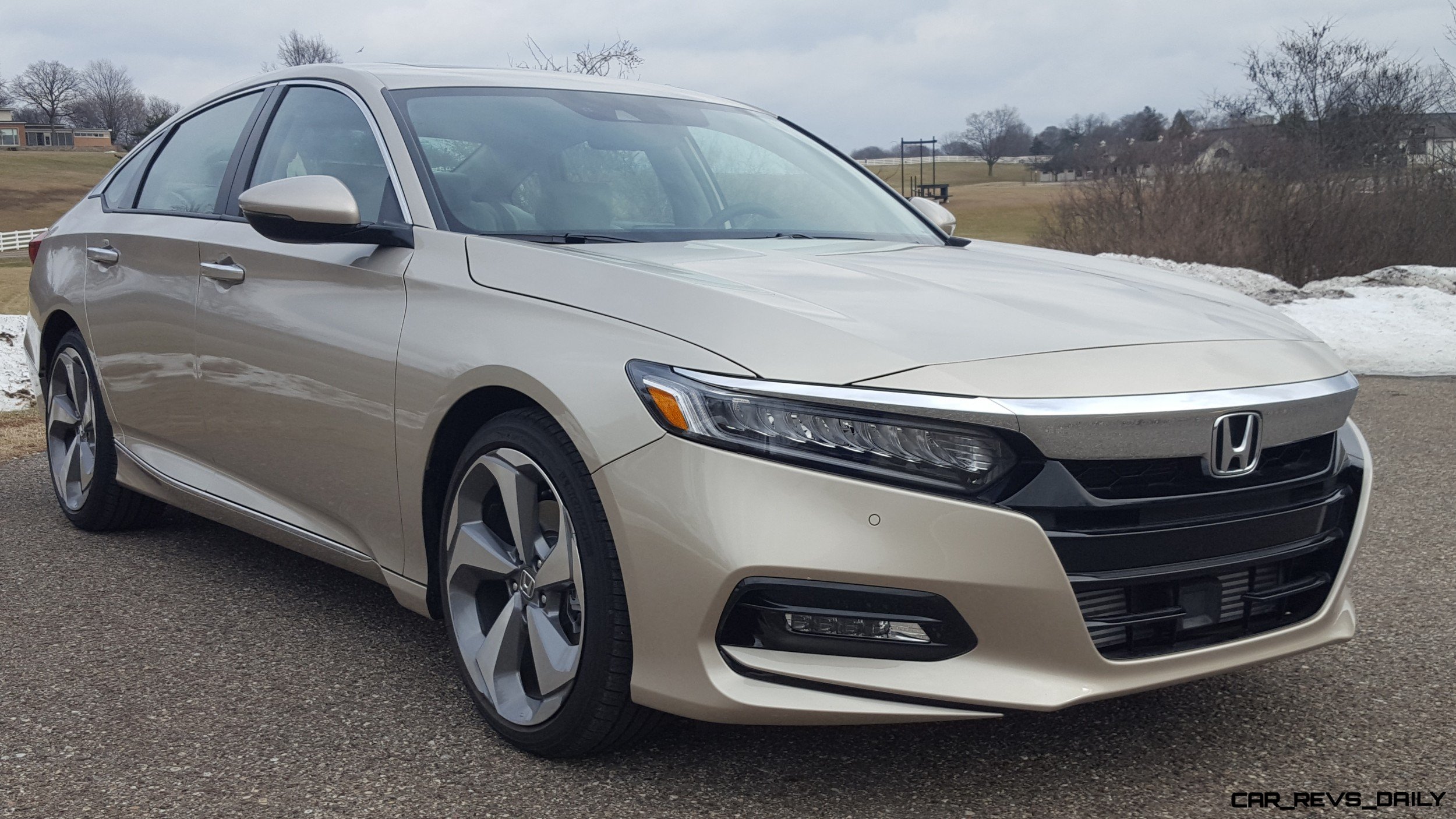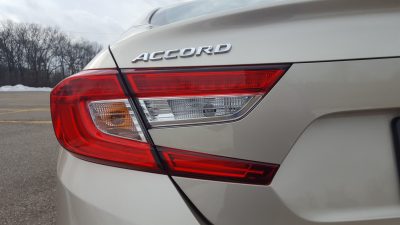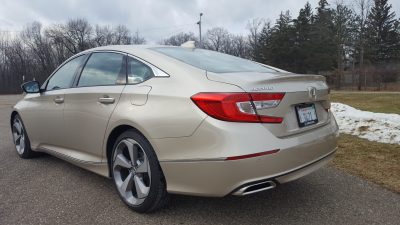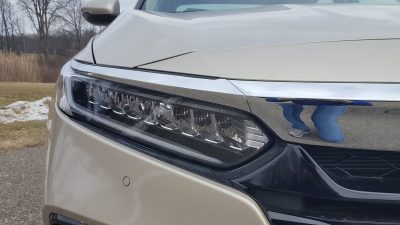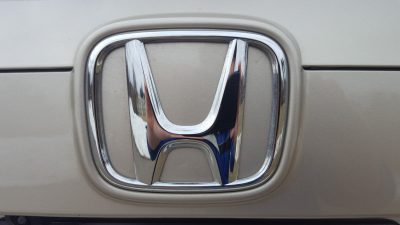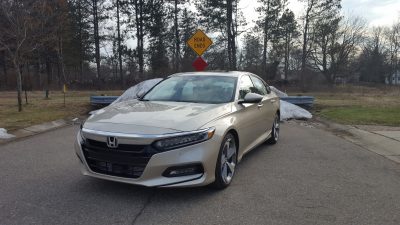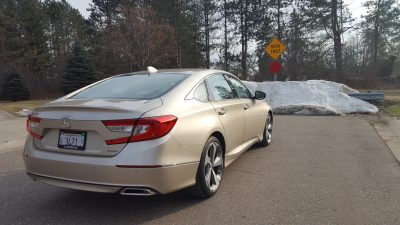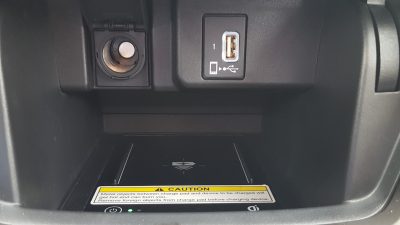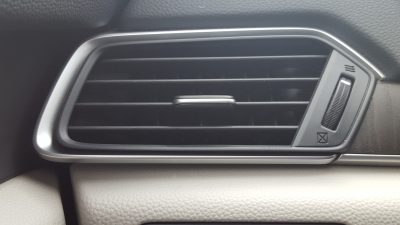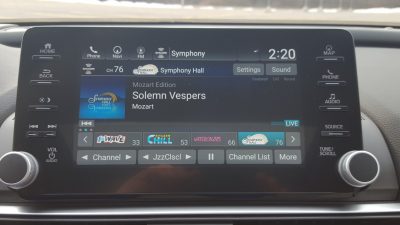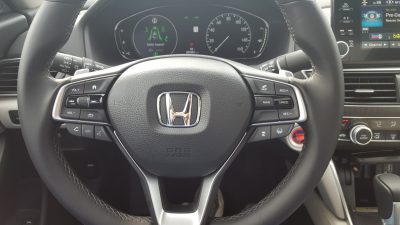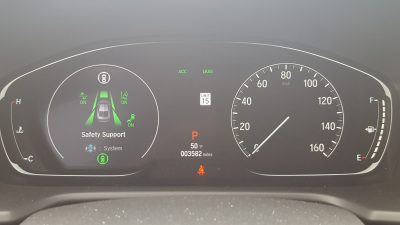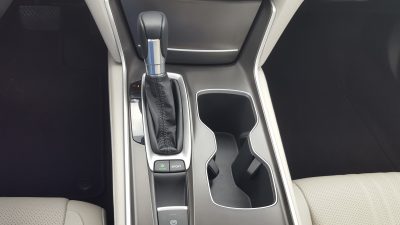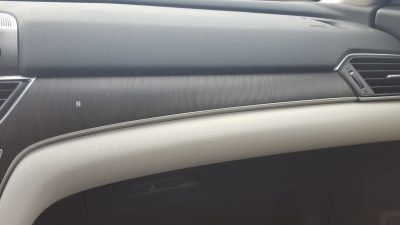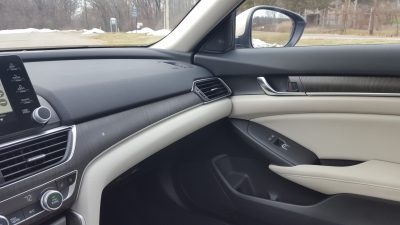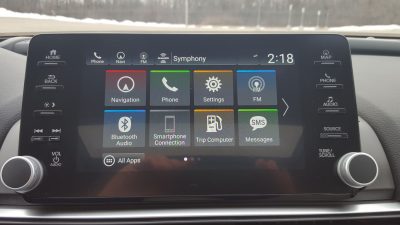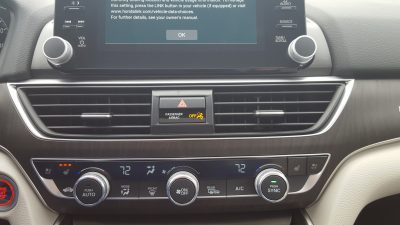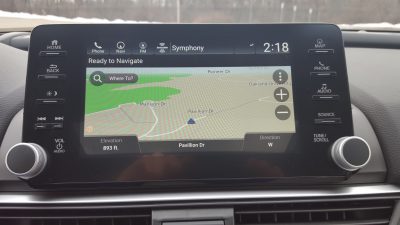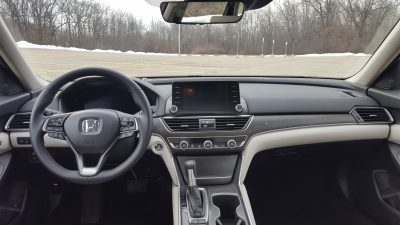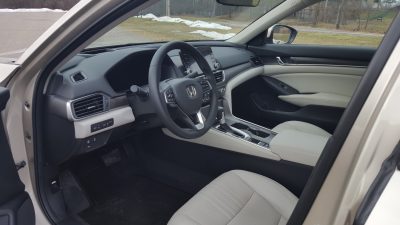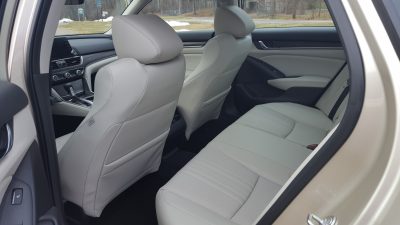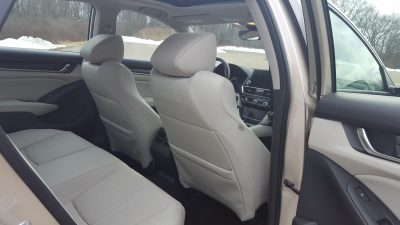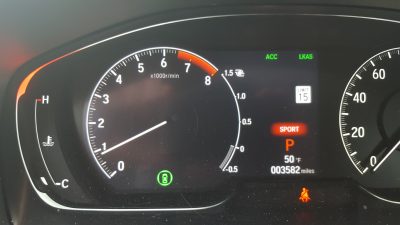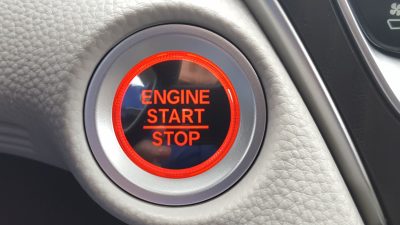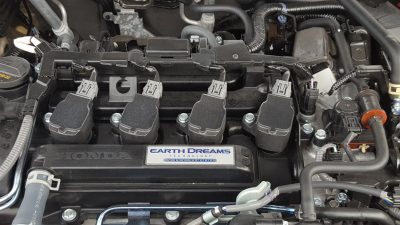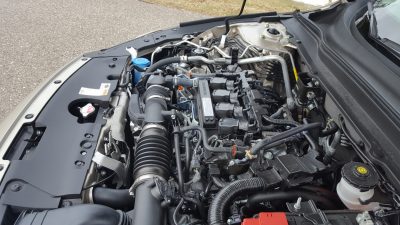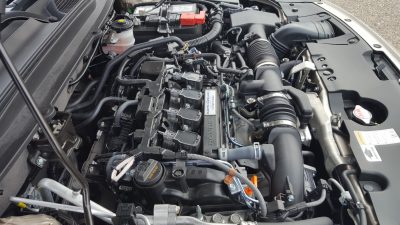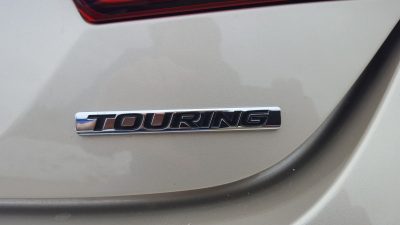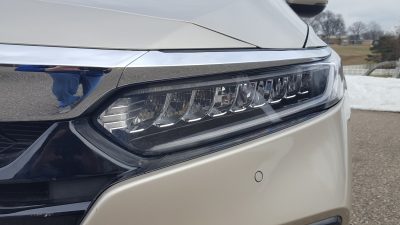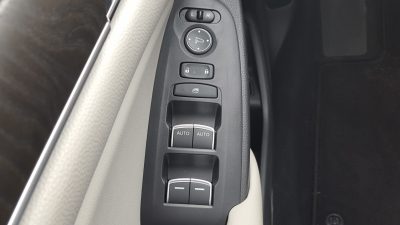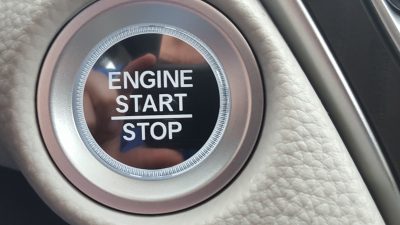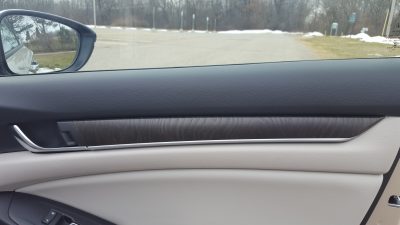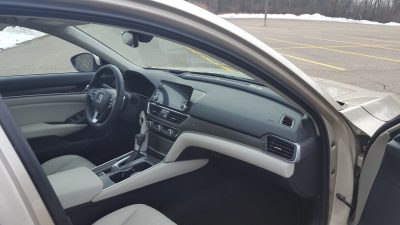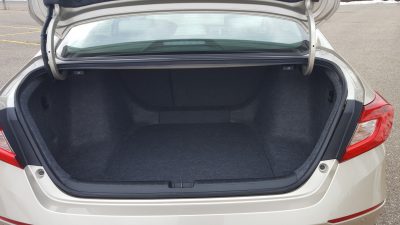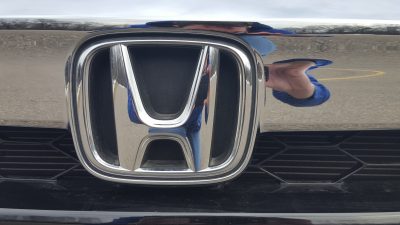When updating a classic that has withstood the test of time, the unenviable task of creating a distinctive entry without tarnishing the reputation of the nameplate can be a daunting endeavor. It’s especially challenging when that nameplate happens to be the venerable Honda Accord. First arriving in the U.S. market during the advent of 8-track tapes, disco music, and pet rocks, the Accord immediately stood out to buyers not only due to its exceptional build quality, but also its impeccable fuel economy. As the decades passed and 8-tracks transitioned to CDs, and ultimately the MP3 file. The Accord remained a formidable contender in the family sedan segment (ultimately creating a rivalry with the Toyota Camry in the process.) But in an era where crossover SUVs have unleashed a wave of demand and sales, can the Accord withstand this onslaught while still remaining a top tier “bread and butter” product?
At first glance, it appears that the Accord has the tools to do so. Wheras the previous generation Accord looked about as exciting as a discount Maytag washer and dryer set at Sam’s Club, this new Accord brings new zest to the moniker. When we last met the Accord at its unveiling in Detroit last year, we noted that it brought a new-found spark to the nameplate, and that adage still holds true. The front fascia shares much of its lineage with the smaller Honda Civic, and embodies the V-shaped design that defined the Civic with healthy amounts of chrome trim, and a beefy front grille for a sporty appearance. The rear of our Touring grade tester goes for a more elegant approach, and features horseshoe shaped tail lights that could pass for those on an up-level Acura offering. The rakish rear window and the aggressive C-pillar add more substance to its sporty lines. The side profile is a bit stale, but in a segment where that has become the new normal, we will give the Accord a pass in this regard. Touring grade models feature bigger rims, and in our opinion, the bigger hoops look better than the smaller offerings on lower tier Accord models.
The interior of our Touring spec tester continued its Acura inspired act, and delivered higher levels of comfort and luxury to occupants. The wood trim in our tester was distinctively faux, but it certainly looked like it was sourced from the real deal thanks to its convincing details and grain pattern. The leather seats in our tester were also sumptuously comfortable, and boasted better support than past Accords. Our tester had heated/cooled seats, and even features heat in the rear seats, a luxury that was once reserved for high end German cars. With the Hyundai Elantra, and now the Honda Accord bringing this feature into the mass market, it’s an example of how crucial this seemingly minor feature has become to many buyers. Seat room in our tester was very good, with healthy amounts of front and rear leg room, as well as commendable levels of head room.
A key change that many buyers will be grateful for is the revamped 8-inch infotainment system. Honda claims that it boasts slicker operation, and improved input speeds with both of those enhancements being quite noticeable during our time with it. We were especially thankful for Honda’s decision to bring physical buttons back into the system. Wheras the old unit suffered from periodic bouts of lag due to its pure haptic touch layout, the hard buttons here help eliminate this issue, and also make it less of a finger print magnet as well. Our tester also featured wireless phone charging, but we found that it did not work with our Android equipped phone, forcing us to charge it using the USB port instead for the duration of the Accord’s stay with us.
Performance hardware for our tester proved to be an interesting surprise. Unlike the bulk of Touring models currently out on the road, our tester did not have the Civic Type R derived 2.0 liter turbocharged four cylinder lurking under its hood. Instead, it had the base 1.5 liter turbocharged engine, and while it will never be as thrilling as the 2.0 liter, this tiny four banger still managed to standout in many driving situations. Also seeing duty in the Civic and the CR-V, this versatile engine produces 192 horsepower in the Accord, and still retains its appetite for unleaded fuel (in the Si it requires premium fuel.) The engine features a 10.3:31 compression ratio, and comes packed with tech including direct fuel injection, and the latest version of Honda’s VTEC variable timing system. This helps the engine generate a respectable 7.3 0 to 60 run, and also allowed it to feel surprisingly poised and sure of itself especially in city driving.
Our tester featured the CVT (versus the six speed manual in the Accord Sport) and while it will still never truly surpass conventional automatic offerings like its 10-speed counterpart, the combination here was actually not that bad, with the CVT producing smooth shifts, and equally accurate down shifts thanks in part to new virtual gear shift software. The fore-mentioned 0 to 60 time bests four cylinder equipped Toyota Camrys and Nissan Altimas, and allows the 1.5 liter Accord to match the decidedly more athletic looking Mazda 6 in a dogfight.
However, the biggest ace up the Accord’s sleeve is its impressive handling manners. The steering is light, but it still does a good job communicating to the driver, though it will never match the razor precision in more sporting affairs. This communicative steering also helps the driver be in tune with the Honda Sensing technology package that can be equipped to the car. This safety focused system combines adaptive cruise control, lane keep assist and more to create an experience that allows the Accord to have borderline autonomous capabilities. We tried the system out on the freeway, and overall it did well, though sharp corners do require the driver to intervene (the software can handle lesser curves.) We look forward to seeing what’s in store for future iterations of the Honda Sensing suite, and whether it can build on the already promising potential that the current system embodies now.
Pricing for the 2018 Honda Accord starts at $23,570 for the base CVT equipped LX model with manual equipped Sport models starting at a slightly higher $25,780. From here the pricing ladder works its way up to the range topping Touring model which starts at $33,800. Our tester had a final MSRP of $34,675 which was solely achieved by the $875 destination fee versus traditional optional equipment. Adding the more powerful 2.0 liter and the 10 speed-automatic adds $2,000, while other accessories and equipment can cause the price to eclipse $35,000. This pricing ladder puts it firmly in the hunt with the Toyota Camry, and also allows the Accord to best other entries, including the Chevrolet Malibu, Hyundai Sonata, and the Kia Optima.
With a new-found styling language that embodies its fun to drive nature, as well as a four course suite of technology and comfort, the 2018 Honda Accord has a strong chance of standing out against crossover contenders that aim to rain on its parade. While we expect demand to shrink slightly due to CUVs, the Accord is one of a select few that can shine in the minds of customers, especially those that partake in the bitter rivalry that it has with the Toyota Camry.
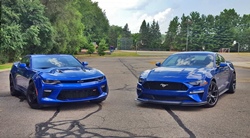
Carl Malek has been an automotive journalist for over 10 years. First starting out as a freelance photographer before making the transition to writing during college, his work has appeared on numerous automotive forums as well as websites such as Autoshopper.com.
Carl is also a big fan of British vehicles with the bulk of his devotion going to the Morgan Motor Company as well as offerings from Lotus, MG, and Caterham. When he is not writing about automobiles, Carl enjoys spending time with his family and friends in the Metro Detroit area, as well as spending time with his adorable pets.

